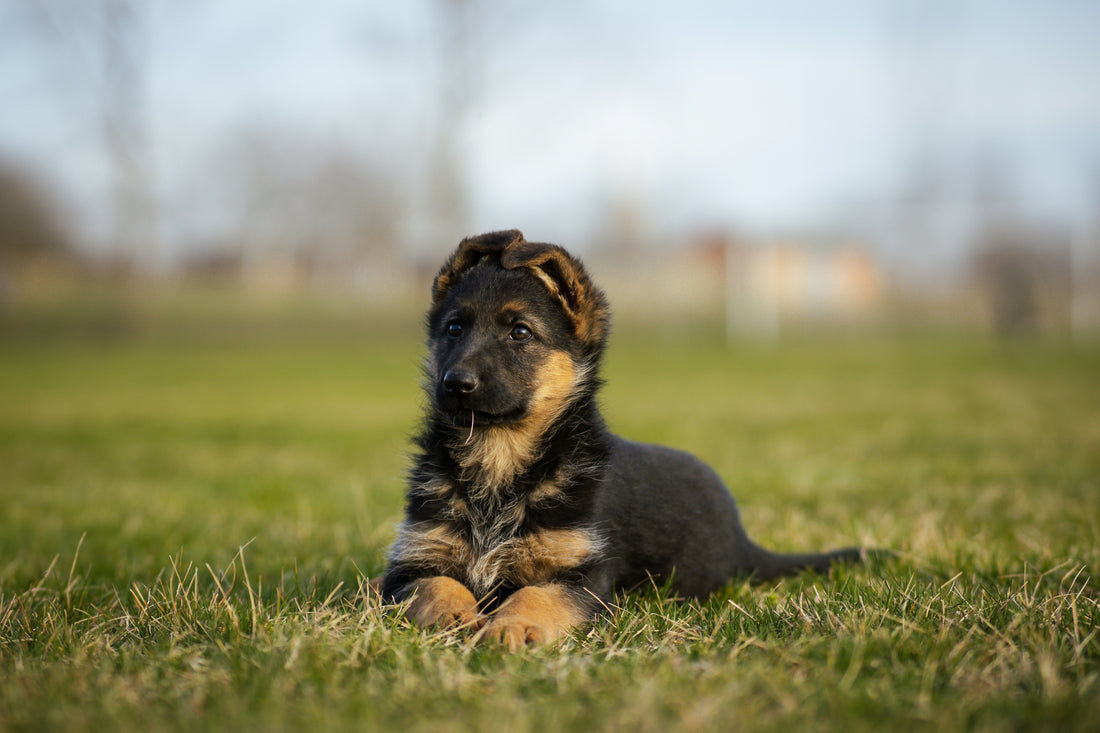
German Shepherds: Everything You Need to Know About the Loyal and Versatile Breed
Share
German Shepherds are one of the most recognizable and beloved dog breeds in the world. Known for their intelligence, loyalty, and versatility, they excel in various roles such as family companions, police dogs, service animals, and search-and-rescue dogs. In this blog, we’ll explore the history, characteristics, care needs, and health considerations of the German Shepherd.
1. History of the German Shepherd
The German Shepherd breed originated in Germany in the late 19th century, where they were developed to herd sheep and protect livestock. The breed was carefully refined to create a dog that was intelligent, strong, and capable of performing various tasks. The breed gained international fame after World War I, when returning soldiers praised the bravery and loyalty of the German Shepherds they had encountered during the war.
Today, German Shepherds are used in a wide range of roles, from police and military work to therapy and guide dogs, showcasing their versatility and reliability.
2. Physical Characteristics of German Shepherds
German Shepherds are large, strong dogs with a distinctive appearance. Some key physical traits include:
- Coat: They have a double coat that is either medium-length or long, with colors ranging from black and tan to sable or solid black.
- Build: German Shepherds are muscular, agile, and well-proportioned, with males typically weighing between 65 to 90 pounds and females slightly smaller at 50 to 70 pounds.
- Erect ears: One of the most recognizable features of the German Shepherd is their upright, alert ears, which give them a confident and vigilant look.
3. Temperament and Personality
German Shepherds are known for their strong work ethic, intelligence, and loyalty. They are highly adaptable and thrive in both family environments and professional working roles. Here are some key personality traits:
- Intelligent and trainable: German Shepherds are one of the most intelligent dog breeds, making them easy to train for a variety of tasks, from basic obedience to advanced commands for specialized roles.
- Loyal and protective: These dogs form strong bonds with their families and are known for their protective instincts. They are excellent guard dogs and are naturally wary of strangers, which makes early socialization important.
- Energetic and active: German Shepherds have a lot of energy and require regular physical and mental stimulation to stay happy. They enjoy activities like running, hiking, and playing fetch.
- Confident and courageous: Known for their bravery, German Shepherds are confident in their abilities and are often chosen for demanding jobs in the police, military, and search-and-rescue fields.
4. Exercise and Activity Needs
German Shepherds are high-energy dogs that require plenty of physical exercise and mental stimulation to prevent boredom and destructive behaviors. Here’s how to keep your German Shepherd active and engaged:
- Daily exercise: German Shepherds need at least an hour of vigorous exercise each day, which can include long walks, running, hiking, or playing fetch.
- Mental challenges: In addition to physical activity, German Shepherds need mental stimulation. Puzzle toys, obedience training, and dog sports like agility or scent work are great ways to keep their minds sharp.
- Working or task-based activities: German Shepherds love having a job to do. Engaging them in tasks such as carrying a backpack on walks or learning new commands will satisfy their need for purpose.
Without adequate exercise, German Shepherds can become restless and may develop behavioral issues such as excessive barking, digging, or chewing.
5. Grooming and Coat Care
German Shepherds have a double coat that sheds year-round, with heavier shedding occurring during the spring and fall. Here are some grooming tips to keep their coat healthy:
- Brush regularly: Brush your German Shepherd’s coat two to three times a week to remove loose hair and prevent mats. During shedding season, more frequent brushing may be needed.
- Bathe as needed: German Shepherds don’t require frequent baths, but you should bathe them when they get dirty or have a strong odor. Use a gentle, dog-friendly shampoo.
- Use grooming wipes: For quick clean-ups between baths, HugWith’s Pet Grooming Glove Wipes are perfect for keeping their coat clean and fresh.
- Nail trimming and ear cleaning: Regularly trim your German Shepherd’s nails and clean their ears with HugWith’s Ear Cleaning Finger Wipes to prevent infections and maintain overall hygiene.
6. Health Considerations for German Shepherds
German Shepherds are generally healthy dogs, but they are prone to certain genetic and health issues. Knowing about these potential problems can help you take preventative measures:
- Hip and elbow dysplasia: German Shepherds are susceptible to hip and elbow dysplasia, which can lead to arthritis and mobility issues as they age.
- Degenerative myelopathy: This is a neurological condition that affects the spinal cord and can result in progressive paralysis.
- Bloat (gastric torsion): Large, deep-chested dogs like German Shepherds are at risk for bloat, a life-threatening condition where the stomach twists and traps gas inside.
- Allergies and skin conditions: Some German Shepherds may develop skin allergies, which can cause itching, redness, and discomfort.
Regular vet visits, a balanced diet, and proper exercise are essential for managing these health concerns and ensuring your German Shepherd lives a long, healthy life.
7. Training and Socialization
German Shepherds are highly trainable and thrive in structured environments with clear leadership. They are known for excelling in obedience training and can learn a wide variety of tasks and commands. Here are some training tips:
- Positive reinforcement: German Shepherds respond best to positive reinforcement techniques, such as praise, treats, and play. Avoid harsh training methods, as these can lead to fear or aggression.
- Early socialization: Socializing your German Shepherd from a young age is important to prevent them from becoming overly protective or fearful of new people, animals, and environments.
- Consistency is key: German Shepherds need clear boundaries and consistent training to understand what is expected of them. Regular training sessions will help reinforce good behavior.
For more expert advice on caring for German Shepherds, check out these trusted resources:
- ASPCA: German Shepherd Breed Information
- American Kennel Club: German Shepherd
- PetMD: German Shepherd Health and Care
By following these tips and incorporating HugWith products, such as HugWith’s Pet Grooming Glove Wipes, into your German Shepherd’s grooming routine, you can help keep them healthy, happy, and well-groomed.
